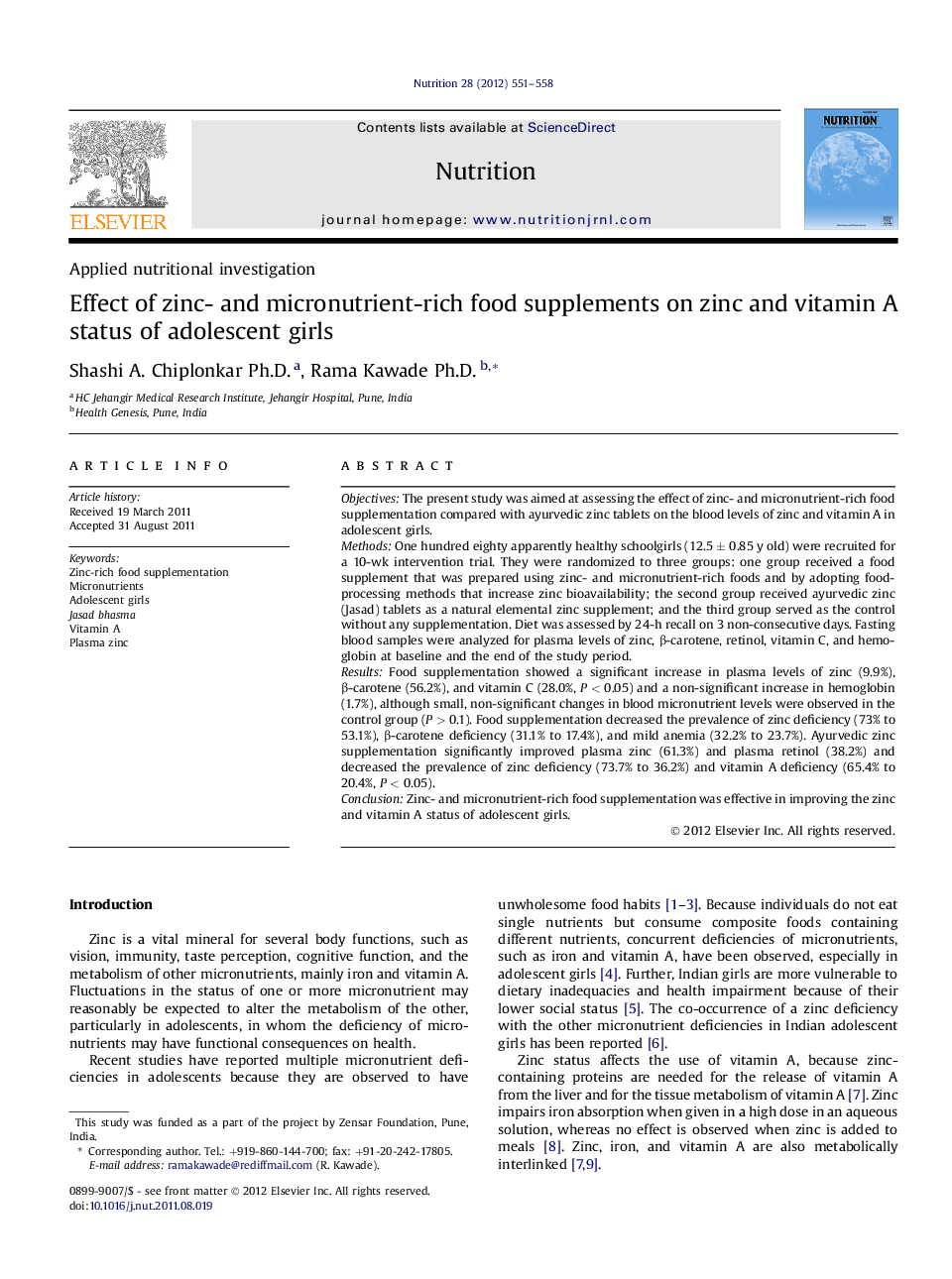| Article ID | Journal | Published Year | Pages | File Type |
|---|---|---|---|---|
| 6090311 | Nutrition | 2012 | 8 Pages |
ObjectivesThe present study was aimed at assessing the effect of zinc- and micronutrient-rich food supplementation compared with ayurvedic zinc tablets on the blood levels of zinc and vitamin A in adolescent girls.MethodsOne hundred eighty apparently healthy schoolgirls (12.5 ± 0.85 y old) were recruited for a 10-wk intervention trial. They were randomized to three groups: one group received a food supplement that was prepared using zinc- and micronutrient-rich foods and by adopting food-processing methods that increase zinc bioavailability; the second group received ayurvedic zinc (Jasad) tablets as a natural elemental zinc supplement; and the third group served as the control without any supplementation. Diet was assessed by 24-h recall on 3 non-consecutive days. Fasting blood samples were analyzed for plasma levels of zinc, β-carotene, retinol, vitamin C, and hemoglobin at baseline and the end of the study period.ResultsFood supplementation showed a significant increase in plasma levels of zinc (9.9%), β-carotene (56.2%), and vitamin C (28.0%, P < 0.05) and a non-significant increase in hemoglobin (1.7%), although small, non-significant changes in blood micronutrient levels were observed in the control group (P > 0.1). Food supplementation decreased the prevalence of zinc deficiency (73% to 53.1%), β-carotene deficiency (31.1% to 17.4%), and mild anemia (32.2% to 23.7%). Ayurvedic zinc supplementation significantly improved plasma zinc (61.3%) and plasma retinol (38.2%) and decreased the prevalence of zinc deficiency (73.7% to 36.2%) and vitamin A deficiency (65.4% to 20.4%, P < 0.05).ConclusionZinc- and micronutrient-rich food supplementation was effective in improving the zinc and vitamin A status of adolescent girls.
